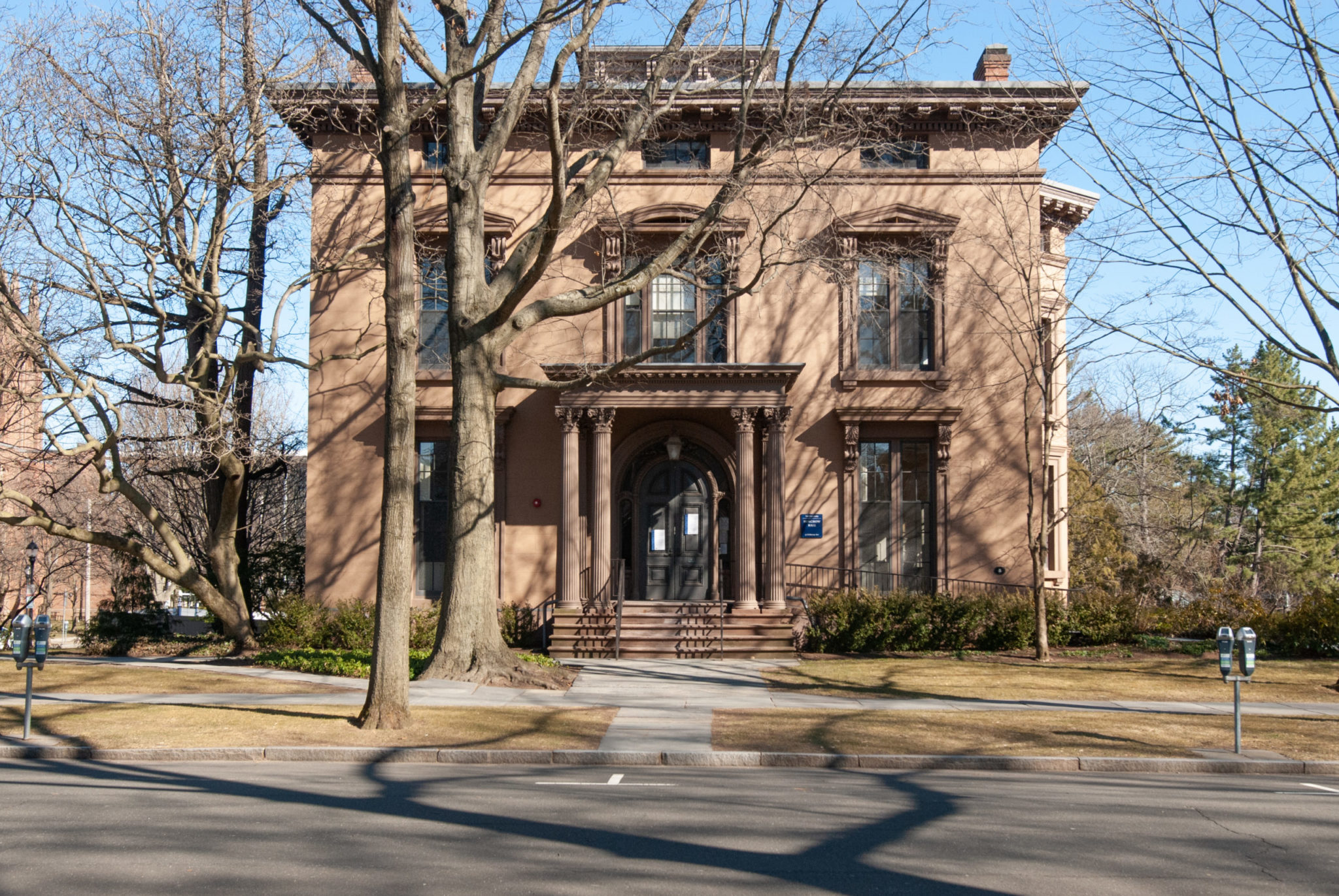
Lukas Flippo, Photography Editor
The Jackson Institute unveiled its newest cohort for the Maurice R. Greenberg World Fellows Program, consisting of 16 men and women from around the world, on Monday. They will join the institute as the 20th cohort of World Fellows in August of this year, when they will begin academic work in New Haven for six months before returning to their careers.
This year’s cohort includes, among others, a human rights lawyer who focuses on Uyghur rights in China, a humanitarian aid worker with the International Red Cross based out of Yemen and a Liberian feminist activist and writer. The World Fellows Program is a leadership development and training program that brings together global professionals on Yale’s campus to further their own academic and professional enrichment while contributing to the Yale community through mentoring, teaching and research. The Fellows mentor students, guest lecture in classes and give talks on campus.
“The Fellows will spend the semester deepening their understanding of global affairs, sharing learning, and exploring new ways to address the challenges facing the world. They will be active around campus, giving talks and mentoring students,” Emma Sky, the director of the World Fellows Program, wrote in an email to the News. “This cohort consists of exceptionally talented, creative, and accomplished individuals … [who] will bring fresh thinking on how to build a better world post-COVID.”
Three incoming World Fellows spoke with the News about their work and what they hope to accomplish at Yale.
Abdi Ismail is the head of mission for the International Committee of the Red Cross in Aden, Yemen, at the forefront of one of the worst humanitarian crises in the world. Having grown up as a refugee from Somalia, he told the News that he had a keen appreciation for those on “the other side of the fence” when dealing with humanitarian crises. Ismail has worked in the humanitarian field for over 15 years, serving in Nicaragua, Kenya, Somalia, Afghanistan, Iraq and now in Yemen, where he currently oversees 40 international staff members and over 150 Yemeni counterparts.
The ICRC’s work in Yemen, Ismail said, consists of providing housing and food for refugees fleeing from the violence in northern Yemen, as well as setting up medical facilities for those directly impacted by the violence. The ICRC is also continuing to monitor the warring parties, ensuring that all are abiding by certain legal constrictions and that prisoners of war are treated humanely.
Ismail welcomed the opportunity to take a few months away from the intense front lines of the crisis and reflect on his experience in the field during the semester at Yale.
Ismail added that the World Fellows Program presents “the opportunity to not only reflect on this experience but engage in collaboration, particularly when it comes to research and faculty.”
“One of the things I would really look to engage in and I really look forward to is the opportunity to have that space where I can collaborate and have that intellectual connection and write and do research,” he said.
The work that Ismail is looking to do at Yale includes an evaluation of humanitarian work, trying to find solutions that “go beyond the Band-Aid-type approach” and examining the Yemeni crisis through the lens of the broader geopolitical configuration of the Middle East.
Korto Reeves is a feminist activist and writer from Liberia who currently is the global head of women’s rights for ActionAid International, a social justice organization spanning 43 countries. She provides policy advice, technical support and fundraising aid to women’s rights projects around the world. She has worked as a feminist activist for 20 years, serving as the co-founder of the Liberia Feminist Forum. She echoed Ismail’s sentiment and said that “at this point in [her] life it was important to do some reflection.”
Reeves said that she was keen to support professors and classes on women’s and gender issues and to mentor students who are interested in the field of global women’s rights.
Rayhan Asat is an international human rights lawyer focused on Uyghur rights in China, currently working at the Raoul Wallenberg Center for Human Rights. She has also worked as a pro bono lawyer for refugees in the United States coming from Latin America. She comes to the issue of Uyghur rights with a personal perspective: Her brother was forcibly disappeared by the Chinese government and placed in an internment camp five years ago. She told the News that it is incredibly important to personalize these tragedies.
“Oftentimes when it comes to mass atrocities, perhaps because of the sheer numbers of the victims, people become numb to the victims, and it is so important that we put a human face to the mass atrocities,” Asat said. “It’s really important to put his face as the human face.”
Asat noted the potential for collaboration with other World Fellows as one of the best components of the program, saying that she was attracted to the program by “the idea of learning from these inspiring leaders towards finding solutions to end this repression.”
She said that she wants to use her new platform to host a speaker series on the issue of Uyghur internment, bringing in journalists, survivors and policymakers to “give a platform to students to learn about this issue from multifaceted angles.” She also hopes to engage with the Schell Center for Human Rights and the Genocide Studies Program.
The World Fellows Program was established in 2002.
Philip Mousavizadeh | philip.mousavizadeh@yale.edu







